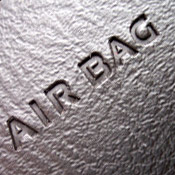
No one in their right mind looks forward to paying for car insurance, particularly when the price is too high.
Drivers have multiple auto insurance companies to pick from, and though it is a good thing to have a selection, having more auto insurance companies makes it harder to compare company pricing.
Finding affordable coverage in Seward is not that difficult. In a nutshell, every vehicle owner who carries car insurance will be able to save money. Although Nebraska car owners must understand how big insurance companies price insurance differently and use this information to your advantage.
Lots of discounts mean lots of savings
Companies don’t always list every discount in a way that’s easy to find, so we break down both the well known as well as the least known ways to save on car insurance.
- Military Discounts – Having a deployed family member can result in better rates.
- Discount for Life Insurance – Larger companies have lower rates if you buy a life insurance policy as well.
- Theft Prevention System – Anti-theft and alarm systems help deter theft and qualify for as much as a 10% discount.
- Early Switch Discount – A few companies offer discounts for signing up prior to your current policy expiration. It’s a savings of about 10%.
- Student Driver Training – Make teen driver coverage more affordable by requiring them to successfully complete driver’s ed class in school.
- Seat Belts Save more than Lives – Buckling up and requiring all passengers to buckle their seat belts can save 10% or more off your medical payments premium.
- Auto/Home Discount – When you have multiple policies with the same insurance company you may earn up to 20% off your total premium.
- Club Memberships – Participating in a professional or civic organization is a good way to get lower rates on car insurance.
- Accident Free – Drivers who don’t have accidents can save substantially compared to accident-prone drivers.
Drivers should understand that some of the credits will not apply to the overall cost of the policy. Some only reduce individual premiums such as comp or med pay. So even though they make it sound like all the discounts add up to a free policy, it just doesn’t work that way.
For a list of insurers with the best car insurance discounts in Nebraska, click here to view.
How do I know if I need professional advice?
When it comes to buying the right insurance coverage for your vehicles, there really is not a best way to insure your cars. Your needs are not the same as everyone else’s so this has to be addressed. These are some specific questions might help in determining if your insurance needs would benefit from professional advice.
- When do I need to add a new car to my policy?
- What are Nebraska no-fault laws?
- Should I sign the liability waiver when renting a car?
- When does my teenage driver need to be added to my policy?
- What vehicles should carry emergency assistance coverage?
- Am I covered when delivering products for my home-based business?
- Do I pay less if my vehicle is kept in my garage?
- Why am I required to buy high-risk coverage?
If it’s difficult to answer those questions, you may need to chat with an agent. To find lower rates from a local agent, take a second and complete this form or click here for a list of car insurance companies in your area.
What if I want to buy from a local Seward agent?
Some consumers would rather sit down with an agent and that is just fine! The best thing about comparing insurance prices online is that you can obtain the lowest rates and still have an agent to talk to.
To find an agent, once you fill out this simple form, your information is instantly submitted to companies in Seward who will battle for your insurance coverage. There is no reason to visit any agencies because quoted prices will be sent directly to your email. You can find better rates without the usual hassles of price shopping.
Choosing an provider needs to be determined by more than just the bottom line cost. Any agent should be forthright in answering these questions:
- Is vehicle damage repaired with OEM or aftermarket parts?
- Which company do they place the most coverage with?
- Are there any hidden costs in their price quote and does it include driving and credit history?
- What will you get paid if your car is a total loss? How is that amount determined?
- Do they have advanced training designations such as CPCU, AAI, AIC, or CIC?
- Do clients work directly with the agent or are most inquiries handled by a CSR?
- What insurance companies do they recommend if they are an independent agent?
- If your car is in the repair shop, do you have coverage for a rental car?
If you want to contact a specific insurance agent in Seward, click here to link.
Once you have received good answers for all questions you ask and an affordable coverage quote, you’ve probably found an insurance company that is a good match to adequately provide car insurance. But remember, you can always cancel your coverage whenever you wish so don’t think you are locked into any specific agency for any length of time.
Can you really save that much by switching?
Companies like 21st Century, Allstate and State Farm regularly use ads in print and on television. All the ads say the same thing of big savings if you move to their company. How does each company claim to save you money?
Different companies have a preferred profile for the type of customer that earns them a profit. For instance, a preferred risk might be between 30 and 50, is a homeowner, and drives newer vehicles. A customer getting a price quote who meets those qualifications gets the lowest rates and therefore will cut their rates substantially.
Drivers who don’t qualify for this ideal profile will be quoted higher rates and ends up with the customer not buying. The ads state “customers that switch” not “people who quote” save that much money. That’s the way companies can truthfully make the claims of big savings. This emphasizes why drivers must compare as many rates as you can. You cannot predict which car insurance company will give you the biggest savings.
Additional detailed information is located at the Nebraska Department of Insurance website. Nebraska consumers can read consumer alerts, download brochures, and view a list of available companies.
These articles may also be worth reading.
Specific coverages
Learning about specific coverages of your car insurance policy can help you determine which coverages you need for your vehicles. Car insurance terms can be confusing and reading a policy is terribly boring. These are the usual coverages offered by car insurance companies.
Comprehensive protection – Comprehensive insurance will pay to fix damage from a wide range of events other than collision. You need to pay your deductible first and then insurance will cover the rest of the damage.
Comprehensive coverage pays for things like rock chips in glass, hail damage, damage from a tornado or hurricane, theft and a broken windshield. The highest amount you can receive from a comprehensive claim is the actual cash value, so if it’s not worth much more than your deductible consider dropping full coverage.
Medical expense coverage – Med pay and PIP coverage kick in for expenses like EMT expenses, prosthetic devices and dental work. The coverages can be used in conjunction with a health insurance program or if you are not covered by health insurance. They cover not only the driver but also the vehicle occupants and will also cover if you are hit as a while walking down the street. PIP coverage is not an option in every state but can be used in place of medical payments coverage
Liability auto insurance – Liability coverage will cover damages or injuries you inflict on other’s property or people. Liability coverage has three limits: per person bodily injury, per accident bodily injury, and a property damage limit. Your policy might show policy limits of 50/100/50 which means a limit of $50,000 per injured person, a total of $100,000 of bodily injury coverage per accident, and a limit of $50,000 paid for damaged property.
Liability coverage protects against things such as funeral expenses, medical services, legal defense fees, structural damage and loss of income. How much coverage you buy is up to you, but you should buy as large an amount as possible. Nebraska requires drivers to carry at least 25,000/50,000/25,000 but you should think about purchasing better liability coverage.
Uninsured or underinsured coverage – This coverage gives you protection when the “other guys” are uninsured or don’t have enough coverage. This coverage pays for medical payments for you and your occupants and damage to your vehicle.
Because many people only purchase the least amount of liability that is required (Nebraska limits are 25/50/25), it only takes a small accident to exceed their coverage. So UM/UIM coverage is important protection for you and your family.
Collision – This coverage covers damage to your vehicle from colliding with an object or car. You will need to pay your deductible and then insurance will cover the remainder.
Collision insurance covers claims like sustaining damage from a pot hole, hitting a parking meter, crashing into a building and rolling your car. Paying for collision coverage can be pricey, so consider removing coverage from lower value vehicles. You can also bump up the deductible to save money on collision insurance.
Shop smart and save
Budget-conscious car insurance is definitely available online and with local Seward insurance agents, so compare prices from both to have the best chance of lowering rates. Some car insurance companies do not offer the ability to get a quote online and most of the time these regional insurance providers sell through independent agents.
When buying insurance coverage, you should never buy poor coverage just to save money. In many cases, an insured cut liability coverage limits only to find out that their decision to reduce coverage ended up costing them more. The proper strategy is to buy enough coverage at an affordable rate, not the least amount of coverage.

